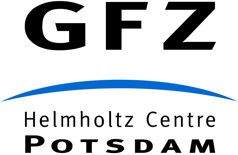Dear colleagues,
Section 4.7 at the GFZ will host a seminar on Tuesday, 18.10.2022 at 02:00 p.m. given by Prof. Jian-Xun Wang.
Prof. Wang's research cuts across “scientific machine learning, data assimilation, Bayesian inference, uncertainty quantification, and computational mechanics. In particular, his research focus is at the interface of physics-informed deep learning, data-driven modelling, scientific computing, and physics-based computational mechanics."
Talk
Structure-preserved machine learning for computational modelling
Prof. Jian-Xun Wang
Aerospace and Mechanical Engineering,
University of Notre Dame (Indiana, U.S.A.)
*****************
Abstract:
First-principle modeling and simulation of complex systems based on partial differential equations (PDEs) and numerical discretization have been developed for decades and achieved great success. Nonetheless, traditional numerical solvers face significant challenges in many practical scenarios, e.g., inverse problems, uncertainty quantification, design, and optimizations. Moreover, for complex systems, the governing equations might not be fully known due to a lack of complete understanding of the underlying physics, for which a first-principled numerical solver cannot be built. Recent advances in data science. and machine learning, combined with the ever-increasing availability of high-fidelity simulation and measurement data, open up new opportunities for developing data-enabled computational mechanics models. Although the state-of-the-art machine/deep learning techniques hold great promise, there are still many challenges - e.g., requirement of “big data”, the challenge in generalizability/extrapolibity, lack of interpretability/explainability, etc. On the other hand, there is often a richness of prior knowledge of the systems, including physical laws and phenomenological principles, which can be leveraged in this regard. Thus, there is an urgent need for fundamentally new and transformative machine learning techniques, closely grounded in physics, to address the aforementioned challenges in computational mechanics problems.
This talk will briefly discuss our recent developments of scientific machine learning for computational mechanics, focusing on several different aspects of how to bake physics-induced bias into machine/deep learning models for data-enabled predictive modeling. Specifically, the following topics will be covered: (1) PDE-structure preserved deep learning, where the neural network architectures are built by preserving mathematical structures of the (partially) known governing physics for predicting spatiotemporal dynamics, (2) physics-informed geometric deep learning for predictive modeling involving complex geometries and irregular domains.
*******************
For those who would like to join via Zoom please ask for access.
Best regards,
Dr. Ngai-Ham Chan


